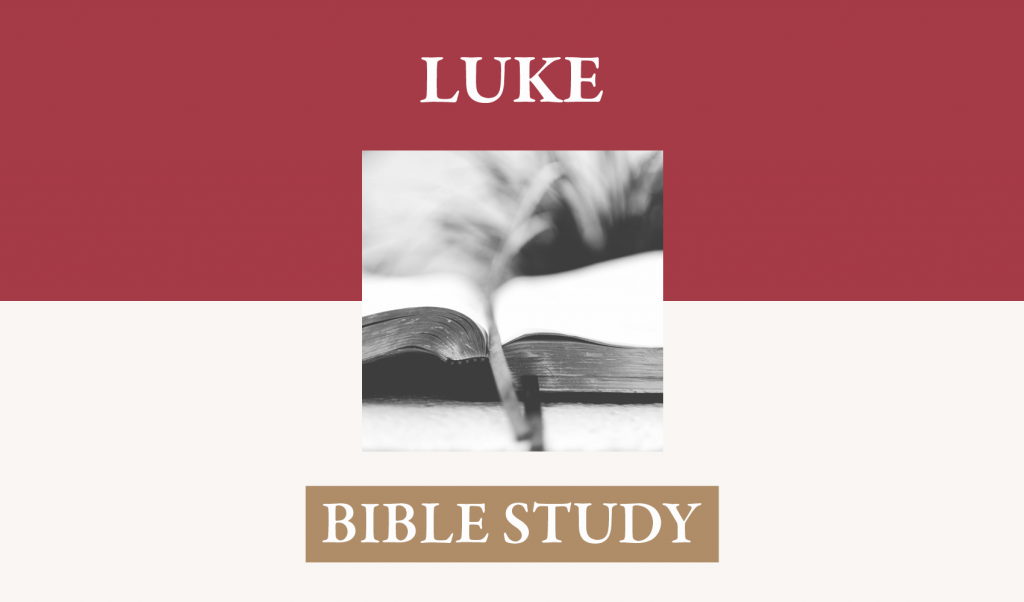Luke 2:1–20
I. Historical and Geographical Setting – It is important for Luke to set his narrative at a particular time.
The historical setting tells these are real events that fit Luke’s purpose that his reader may “know the exact truth about the things you have been taught” (1:4). Thus, the birth occurred in conjunction with a call for registration for taxes during the time that Quirinius held some governing capacity in Syria during the reign of Caesar Augustus; and, of course, Herod the Great was the King of the Jews. Being able to determine the exact date from this data has provided a challenge to commentators and historians. A final clear solution must await further data, but that which is provided puts the date close to 4 BC. The secular arm of power became the means by which OT prophecy was fulfilled, that Jesus would be born in Bethlehem (Micah 5:2–5). The Lord reigns over all the earth.
II. Elevation of the simple, outcast, and downtrodden. This is a theme of Mary’s Magnificat; “He has brought down the mighty from their thrones and exalted those of humble estate” (Luke 1:52).
A. Lukan Themes
-
- Jesus gives special attention to the poor (1:48ff; 2:7ff; 4:18; 6:20ff; 7:13;14, 16:19–31; 18:35–43]
- He converses with despised tax collectors (3:12; 5:27, 28; 7:29, 34; 15:1, 18:9–14 19:1–10]
- He engaged those known in Jewish religious categories as Sinners (5:8,20; 7:34, 37; 15:1, 2, 10; 19, 23).
- He paid attention to the Samaritans (chapters 9:51–56 but also John 4:1–42; 10:25–37; 17:16).
- Jesus included Gentiles in his ministry (2:32, 7:1–10, 24:47).
- Luke emphasizes the importance of women in the gospel events (1, 4, 7:11–17, 36–50; 8:1–3, 40–48; 10; 13, 18; 21; 23; 24).
B. Enrichment of the ordinary
-
- Appearance to shepherds – known as dishonest and unclean, the testimony of shepherds was not accepted in court; If this had been a manufactured bit of history, Luke hardly would have had shepherds as providing the first testimony to the birth of Jesus. Brutal honesty is one of the pervasive traits of the entire corpus of Scripture. In light of this cultural perception, how charming is the report, “And all who heard it wondered at the things which were told them by the shepherds” (2:18).
- Instead of a display of unbearable glory, the Son of God was wrapped in strips of cloth: –He had exchanged the unviewable glory of his intrinsic holiness and excellence and essential omnipotence for the bands of cloth used to give warmth and a feeling of security to a new-born, utterly dependent, human child. The eternal Son of God “made himself nothing, taking the form of a servant, being born in the likeness of men” (Philippians 2:7).
- Lying in a manger – Jesus’ own birth would reinforce his message of “Take no thought for tomorrow, what ye shall eat etc.” In his birth, all that he had was on short loan from others and not his at all. The entire affair of bringing him safely into this world was a matter of divine providence. The glory of his coming did not adhere to any pomp or powerful posturing in his immediate circumstances. The glory of it was a matter of revelation given by angels to selected persons of little esteem by worldly standards.
Note: No amount of earthly status could add anything to the intrinsic glory of Christ; he needed no external trappings to exalt him and he came as an act of pure grace. This is emphasized by the sheer glorylessness of his personal external circumstances in entering the world. It is one element of Jesus’ being a stumbling block that so inglorious a setting was given the Messiah. Note the irony of the later observation, “Can any good thing come out of Nazareth?” (John 1:46).
III. Announcement – In accordance with the true heavenliness of this event, an angel, though again in a somewhat privatized setting [just to shepherds], announced this event.
This angel would be joined by a “multitude” to express the amazing exhilaration of these glorious heavenly beings at the coming to earth of the one around whose throne they had sung and marveled for ages.
A. Pattern in Luke
-
- Appearance of the Angel – 2:9; cf. 1:11; 1:26, 27.
- Response of fear – 2:9; cf. 1:12, 13; 1:29, 30.
- Word of reassurance – 2:10; cf. 1:13; 1:30.
- Divinely ordained message – 2:10–12; cf. 1:13–18; 1:30–33.
- Sign event [in this case not including any questioning] 2:12; cf. 1:13, 24; 1:36
B. To the shepherds
-
- The Angel stood before them. The angel probably is not hovering in the air but is with the shepherds on the ground. At the tomb, “they stood by them in dazzling apparel” (Luke 24:4). In John, they were “sitting where the body of Jesus had lain” (John 20:12). Mark mentions a “young man sitting on the right side” (15:5). Matthew says, “An angel of the Lord descended from heaven and came and rolled back the stone and sat on it” (28:2). As different people arrived at the tomb or lingered near it the angels moved about and were present for some time.
- Appearance of angels – The coming of the angel made the glory of the Lord shine around the shepherds, probably an emanation from the angels for they stand constantly before the glorious throne of the thrice-holy God. Even Moses, not an angel but a mere man, reflected the divine glory when he came down from the mountain (Exodus 34:29–35). Angel means messenger; and as usual these angels had a message from God; They spoke what God told them and no more.
- The message was
-
-
- “good news of great joy” – The angel uses a verbal form for gospel: “I announce to you the gospel” (10).
- “great joy” – Maintaining the themes, Pater called this “joy inexpressible, full of glory” (1 Peter 1:8; 1 John 1:4). The Messianic prophecies of Isaiah 35 say that the ransomed of the Lord will return with “everlasting joy on their heads. They shall obtain joy and gladness, and sorrow and sighing shall flee away” (Isaiah 35:10). This is the announcement of that joy.
- “to all the people” – In this case, the angel’s reference is probably to the Jews, indicated by a definite article “the people,” [not peoples] referring in particular to those who already were recipients of promises and were waiting for the redemption of Israel. See the song of Zacharias in 1:68– 79 – “to show mercy promised to our fathers and to remember his holy covenant, the oath that he swore to our father Abraham.”
- A child is born, a Son is given in the most humble of states [in stark contrast to the glory which shone around the angels; their radiance of glory was a manifestation of his intrinsic glory]. Note again the implicit mystery of this event. A “child is born,” as a real human of the seed of the woman, and “a Son is given” in true deity, eternally the Son of the Most High. Only one who is both an eternal Son—see Hebrews 1:5—and an earthly child—see Hebrews 1:6—could redeem the fallen race of men.
-
C. A Multitude of heavenly host join the single angel standing before the shepherds (13).
-
- They gave glory to God; Angels, both by divine revelation and continual observation knew that this entire episode would be a demonstration of the divine attributes in a way that no other event had ever been or would ever be. To them it is a marvel to be observed throughout his life and also in the gathering of the people for whom he came in redemptive love (Ephesians 1:21; 4:10; 1 Peter 1:12).
- They announce peace to those who are the objects of his good pleasure. The Savior has come to reconcile the elect (Ephesians 1:5, 9).
- Confessional importance of Angels – 1 Timothy 3:16 “Seen by angels.
-
-
- At the Birth – Luke 1 and 2
- Temptation – Mt. 4:11
- Gethsemane – Lk 22:43
- Resurrection – Lk 24:4–6
- Ascension – Acts 1
- Aids in gospel proclamation – Acts 5:18–21; 12:6–11
-
IV. Titles of Jesus
A. This is a theme of Luke.
-
- Son of the Most High – 1:32; 8:28
- Son of God – 1:35
- My Lord – 1:43
B. In the Text
-
- Unto you is born a Savior: Joseph was told, “You shall call his name Jesus, for he shall save his people from their sins” (Matthew 1:21).
- Who is Christ – “We have found the Messiah” (which means Christ)” (John 1:41); “I who speak to you am he” (John 4:26). “Everyone who believes that Jesus is the Christ has been born of God” (1 John 5:1). The Christ is the anointed One. He is prophet, priest, and king. He fulfills all the types of Israel’s governance, regulated worship, and special revelation.
- The Lord– “My Lord and my God” John 20:28; “Every tongue confess that Jesus Christ is Lord” (Philippians 2:11). Peter preached at Pentecost, “God has made this Jesus, whom you crucified, both Lord and Christ” (Acts 2:36). Paul uses he nomenclature of “Lord” in referring to Jesus over 390 times in his letters. “If you confess with your mouth the Lord Jesus and believe in your heart that God has raised Him from the dead, you will be saved” (Romans 10:9 NKJV).
V. Importance of the historical appearing –
A. Scripture texts showing the emphasis on the true, physical historic phenomenon of the incarnation of the eternal Son of God in a true human nature — Lk 24:26, John 3:17, Acts 17:3, Romans 3:21; Romans 8:3; 9:5; Gal 4:4; Phil 2:6, 7; Col 1:19; 2:9; 1 Tim 1:15; 3:16; 2 Tim 1:10; 2:8; Titus 1:2, 3; 3:4; Heb. 1:6; 2:9, 14; 5:7. 1 John 4:2
B. God’s redeeming activity is not accomplished by an act of mere will. It had to be accomplished through the completion of and honoring of righteousness among his human creatures.
“Therefore, he had to be made like his brothers in every respect, so that he might become a merciful and faithful high priest in the service of God, to make propitiation for the sins of the people” (Hebrews 2:17).
VI. Responses to the immediate occasion –After the angels returned to heaven several responses of earthly recipients of these angelic visitations are seen.
A. The Shepherds had three responses:
-
- They went immediately and found things just as the angels had said. Nothing can thwart the plan of God in sending his Son to accomplish the saving of his people. All of it will be just as God has said.
- They told others about these events and about the content of what the angels had said. A Savior was born; the Savior was indeed the Christ, and the Christ was the Lord.
- The shepherds evidently had believed this with a saving belief for they returned, “Glorifying and praising God” and knew that the message they had heard proved to be unalterably true.
B. Those who heard the shepherds had a response – They wondered.
This is not an expression of doubt in the colloquial sense of how we often use the phrase, “I wonder.” The words express a sense of perception of a glorious truth, that is, they found these things to be matters of marvelous importance. They perceived that, indeed, something full of mystery had occurred.
C. Mary responded:
-
- She “treasured up” all these things. From the moment of Gabriel’s appearance to her (the angel that stands in the presence of God – Luke 1:19) to the appearance of the shepherds (who were among the most lowly esteemed in the earth), Mary’s life had been a whirlwind of infinitely glorious events.
-
-
- To her had been given the statement as to how the Son of God would also be her own son. Hers would be a truly Trinitarian experience in which the Holy Spirit came on her and the power of the Most High overshadowed her so that the child to be born would be the “Son of God.” (Luke 1:35).
- She was told that her relative Elizabeth had also conceived, a child that leaped in the womb at the appearance of Mary.
- She had been moved mightily to give forth from the overflow of her own soul an elegant expression of praise to God. She exclaimed God had set forth in her own body invincible actions in fulfillment of the Abrahamic covenant. Though weak and lowly, apparently insignificant and unimpressive by worldly standards of show and pomp, an unconquerable, all-consuming event was taking place. (Luke 1:46–56)
- Joseph, her betrothed, also had been assured by divine revelation of the supernatural events that led to the pregnancy of Mary (Matthew 1:18–25).
- She had made a journey to the city of David and had given birth in a stable.
-
-
- She pondered all these things. Throughout her life she saw unfolding before her the truth that she would soon be forced to hear, “and a sword will pierce through your own soul also” (Luke 2:35).
VII. Assumptions and Inferences
A. Note the connections between history and redemption – The Fall took place in time and space and brought God’s curse on man in particular but by extension on all the earthly creation (Romans 8:18–23).
The Creation awaits the consummation of redemption at the time of the matured “adoption as sons, the redemption of our bodies.” Within that sphere, then, God’s righteous judgment must be manifest, and it must be accomplished in the nature that sinned. Christ took on himself our nature, confirmed it to eternal life by his perfect righteousness, and rescued it from the corruption of death by his becoming a curse for us.
B. Note the clarity and simplicity of revelation – The incarnation itself, shows a wisdom and power of truly divine proportions.
A complete understanding of it will always elude us and the contemplation of it will be one of the most entertaining and joyful experiences of eternity. The events themselves, however, and the announced purpose of these events are very clear. The Son of God has become incarnate to be a Savior of sinners, to gather his people together as a redeemed community.
C. We must learn to be content and find our only security and deepest joy in knowing, no matter what the appearance of our earthly status, that we are so absolutely in the hands of God, that no earthly position is any more secure than another, but all positions are equally matters of divine directive and will.
We cannot conceive of the joy and the trial
Of being with child
Without human father.
Conception unlike any other who’s born,
A birth toward a thorn
A people to gather.
But this strange child-bearing would bring salvation;
give exaltation
To those poor in spirit.
A covenant promise to Abraham’s seed
Fulfilling their need
Of One who had merit.
For angels to shout to poor shepherds at night,
“There’s no need for fright;
Go look in the stable.”
Messiah, the Lord, a true Savior appears
To banish our fears,
To save he is able.
“This day!” With haste the first good-news hearers bowed,
The low, not the proud,
To them was Christ made known.
Treasures now were multiplied in Mary’s heart,
As shepherds depart.
Her babe had sought his own.
Revealer of hearts for falling or rising,
Princes surprising
In his conquering hour.
Born unto death, so the grave he defeated,
Never repeated,
Now he wields all power.
Glorious Savior sent to bless
Sinners with your righteousness,
Take their souls in your embrace.
Rule us from your throne of grace.





























